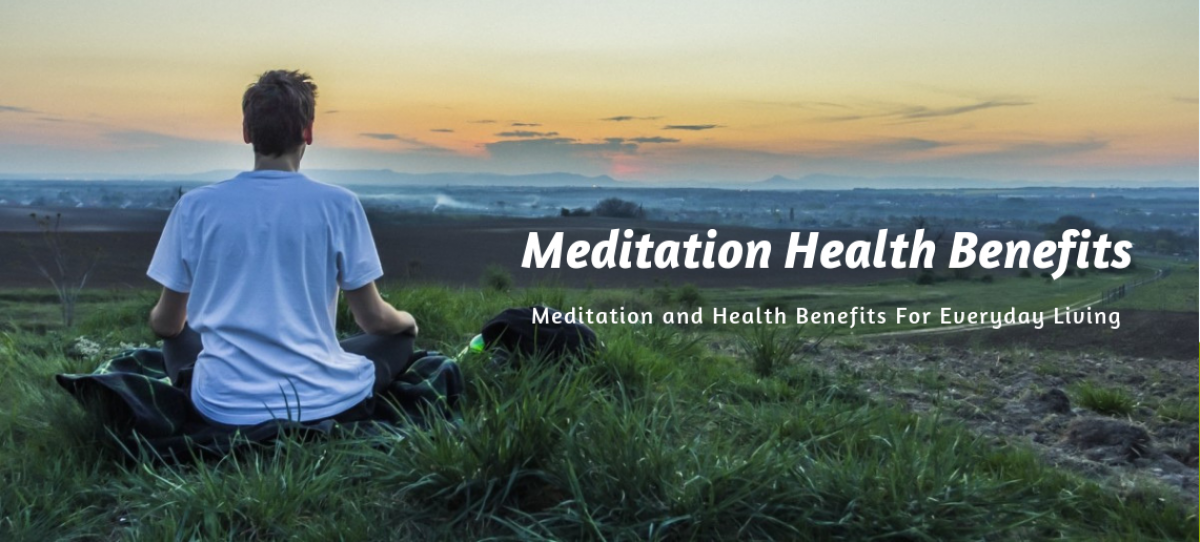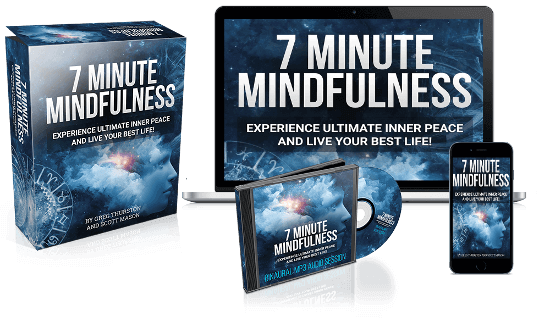“Mindfulness” is a bit of a buzzword right now, but that doesn’t mean that you should ignore its meaning. Being mindful is one of the best things you can do for your body and mind!
But you might not be sure what it is. Is mindfulness just being more aware? Or does it mean clearing your mind?
Being mindful, in one sense, is like simplifying things. Normally we try to multitask all day, worrying about 20 things while doing 10. That doesn’t work very well.
Being mindful means focusing on the here and now. Being fully here. It allows you to check in on what’s going on right around you and inside you. In so doing, it simplifies things because you can just live in the present moment.
You can meditate to be more mindful, and you can practice it throughout your day. Whatever you are doing, give it all of your attention. Be proactive about putting aside your other worries and being present in what you’re doing and who you’re with.
To experience the ultimate feelings of inner calm and presence, I highly recommend that you follow this link…
Click Here To Discover 7 Minute Mindfulness
You’ll gain inner peace, happiness and feel ‘uncluttered’ in your life.
Mindfulness is a gift that we don’t think about giving ourselves. In fact, our society teaches that we should be getting as much done as possible all the time, which leads to burnout, stress, health problems, and lower productivity.
Mindfulness, on the other hand, offers the opposite, so let’s take a look at all the benefits of mindfulness.
1. Mindfulness Reduces Stress
Let’s start with the biggie. In today’s world, we really battle stress from all sides.
If we carry around all the things we have to worry about, our mind never gets a break. That’s why so many people are completely burnt out, feeling down, and stressed to the point of panic attacks or needing medication.
This kind of worrying steals away any chance of joy or relaxation during our day. You probably know how it goes: you’re sitting at your desk at work, stressed about a deadline, and also about a disagreement with your partner, and some tension you’re feeling with a coworker, and the company party you’re supposed to attend tonight…
Constantly carrying all of these things and feeling continued stress leads to:
Restless sleep
A racing mind
Low energy
Feeling irritable
Feeling defensive
Getting angry easier
Panic attacks
Constant panic
Headaches, body aches, migraines
Jaw pain from clenching teeth
Tight shoulders and back pain
Depression
As you can see, trying to keep track of everything on your mind leads to all kinds of problems, resulting in lower productivity and, possibly, worse things.
We might even feel guilty if we forget to worry about something. Do you ever do that? You’ll finally get absorbed in something and it feels really nice, but then you remember all the things that aren’t resolved, and you feel guilty for letting yourself have a few minutes.
But you need those minutes!
Being mindful and present will allow you to get absorbed in what you’re doing, give it your full attention so you can do better, so you’ll feel more clear and mentally energized.
Your body and your brain were not made to handle constant stress. It’s so much healthier to be present and put aside the other overwhelming thoughts.
Challenge yourself to be mindful in one activity a day: a walk, meditation, making a craft, writing, drawing, singing, or something else you enjoy.
See how it feels to let yourself be fully present with that one thing and not having thoughts about anything else. And then see how you feel the rest of the day.
2. Mindfulness Creates Better Health
Being mindful and present lowers our stress levels and also centers us, giving us many health benefits.
You might notice that you’re calmer after practicing mindfulness, your head feels more clear and focused, you’re more productive, and more alert.
Being mindful brings peace to your mind, and that in turn benefits your body and overall health.
People who practice being mindful have higher brain function, an increased immune system, lower blood pressure, lower anxiety levels, and are calmer.
We’ve heard this for years, but experts were talking then about meditation and yoga. Both of those are ways to be mindful!
Click Here To Discover 7 Minute Mindfulness
3. Mindfulness Decreases Depression Symptoms
Decreasing stress and improving your health can help with depression.
Mindfulness does that and more. It’s been considered an effective part of overall depression treatment for a long time.
Being mindful often helps people see and acknowledge their feelings, and that leads to better coping skills. Being mindful lets you say, “I see that I’m feeling that way, and that’s okay.”
Being mindful engages the observant self, so you can notice how you’re feeling, and what you’re thinking, but not get completely sucked into those feelings. You can step back and analyze the situation better.
4. Mindfulness Increases Neuroplasticity
Neuroplasticity is one of those fun words (in my opinion) that show you what they mean. Neuro, or brain, plus plasticity, or being flexible.
Think about how plastic can be soft and pliable.
Being mindful helps your brain increase its ability to change and adapt, which is pretty important to our survival in this hectic day and age.
In a simple sense, neuroplasticity refers to how our brain grows, learns, and changes. When we change our mind or learn new things, we actually make new pathways.
But this has bigger scientific implications. When someone has a stroke and has to relearn how to walk, they’re actually learning how to re-circuit their brain around the damaged area.
Imagine how much stronger your brain will be if you practice mindfulness and, in turn, improve neuroplasticity. That’s a huge advantage for dealing with all of life’s curveballs.
Click Here To Discover 7 Minute Mindfulness
5. Mindfulness Helps You Deal With Illness
Studies have found that mindfulness helps people with cancer and people with chronic illness – even terminal illnesses.
I can see why being in the moment more would help someone enjoy life day by day. Research has found that mindfulness helps cancer patients reduce stress while relieving fatigue.
For many, mindfulness increases our spirituality and sense of purpose, and it helps people handle their emotions regarding their illness.
Mindfulness can greatly improve life for people with chronic pain, such as lower back pain. It helps patients focus on something other than the pain.
6. Mindfulness Helps Recovery
We’ve seen all the ways mindfulness benefits our mental and emotional health. It also helps us physically when we need to recover from illness.
This is probably due to all the other benefits of being mindful.
We have better focus, we’re less stressed, we feel more at peace, and so we’re happier.
We’ve talked about some big areas where mindfulness helps. To zoom in a bit, here’s a list of more specific ways that being mindful improves our lives:
Better mental health
Less stress at work
Better emotional regulation
Fewer problems with alcohol and drugs
Less depression and anxiety
Better performance at school and work
Better relationships
Better self-awareness
Less burnout
Better able to cope with ups and downs
More resilience
We’re just healthier when we’re more mindful because people weren’t created to multitask all day long and always be worrying about getting things done.
We can benefit from slowing down and enjoy being in the moment. Why let other things detract from what you’re doing? You can give those other things your attention in due time.
For the ULTIMATE experience of mindfulness, I highly recommend that you check out 7 Minute Mindfulness
This method will make your mind as calm as water on a beautiful summer’s day…
I’m talking about a method that will allow you to sink into relaxation, and feel abundantly positive and happy within minutes…
It will fill your life with joy and satisfaction…
And teach you how to easily defeat any life problems that you may be facing.
And it only takes 7 minutes!





 The good news is you don’t have to fall into one of these groups to reap the benefits. A great perk is you will not need a church, temple or similar place to practice this art. Any room in your home will do the trick.
The good news is you don’t have to fall into one of these groups to reap the benefits. A great perk is you will not need a church, temple or similar place to practice this art. Any room in your home will do the trick. If you have ever watched videos of people in contorted meditating positions that look more like advanced yoga poses, do not worry. The idea is to be in a relaxed position allowing you to concentrate. It may mean sitting Indian style, lying down, standing or even walking.
If you have ever watched videos of people in contorted meditating positions that look more like advanced yoga poses, do not worry. The idea is to be in a relaxed position allowing you to concentrate. It may mean sitting Indian style, lying down, standing or even walking. sound or word that can be repeated in order to help the mind focus. This practice can lead to a spiritual experience but it is not a required technique. Some people, however, have reported that focusing on any sort of repeated action like a mantra or rhythmic breathing has helped them achieve a higher level of awareness.
sound or word that can be repeated in order to help the mind focus. This practice can lead to a spiritual experience but it is not a required technique. Some people, however, have reported that focusing on any sort of repeated action like a mantra or rhythmic breathing has helped them achieve a higher level of awareness.